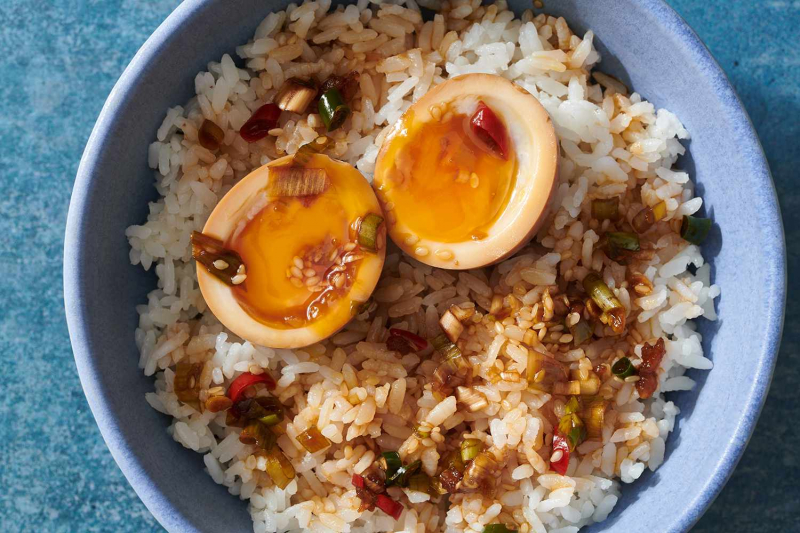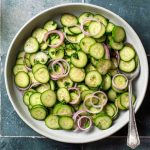Prep: 30 mins
Cook: 10 mins
Marination Time: 6 hrs
Total: 6 hrs 40 mins
Servings: 4 servings
Yield: 8 eggs
The TikTok sensation mayak gyeran is a riff of a classic Korean banchan, gyeran jangjorim, which is hard boiled eggs braised in soy brine. While comforting and delicious, braising already hard boiled eggs can cause the yolk to overcook. Mayak eggs (gyeran is eggs in Korean) bypasses the need to braise while keeping the yolk nice and jammy, so you end up with soft boiled eggs marinated in aromatic soy brine.
What Does "Mayak" Mean?
Personally, I do not like calling this dish mayak, given that it means illicit drugs in Korean. (Kind of like how we no longer use “crack” to describe delicious and addictive foods.) Delicious and craveable doesn’t have to be associated with drugs, don’t you think?
The Secret Ingredient
Nonetheless, this recipe is very easy and flexible. Unlike many other recipes out there, I add balsamic vinegar to my brine because I appreciate acidity in my dishes and I like how acidity balances out the sweetness. Plus, balsamic vinegar has natural sweetness that allows you to use less sugar in the recipe.
How To Serve Mayak Eggs
Serving mayak eggs over white rice is the classic way to enjoy them, but try them over avocado toast, on salads, or turn them into a unique iteration of egg salad sandwich!
“Being precise with the timings when boiling and cooling the eggs is important, because jammy yolks really add to their deliciousness. I marinated mine overnight and they were wonderful served over rice, with some of the marinade spooned over the top and with a side of spicy kimchi.” — Julia Hartbeck
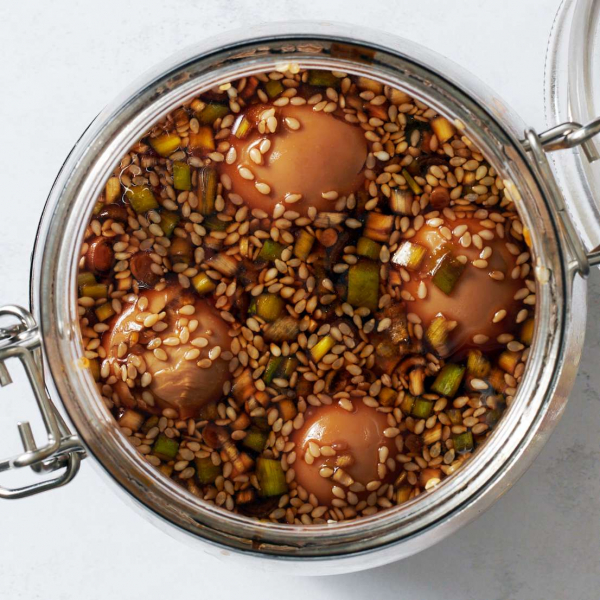
A Note From Our Recipe Tester
Ingredients
-
1 tablespoon fine salt
-
8 large eggs, at room temperature
-
1/2 cup low sodium soy sauce (Kikkoman preferred)
-
1/4 cup water
-
1 tablespoon aged soy sauce (or dark soy or hoisin sauce)
-
1 tablespoon balsamic vinegar
-
1/4 cup granulated sugar
-
4 scallions, white and light green parts only (about 4 inches), chopped
-
2 to 3 chiles of your choice, chopped
-
1 tablespoon toasted sesame seeds, optional
-
1 tablespoon minced garlic, optional
Steps to Make It
-
Gather the ingredients. Make sure your eggs are at room temperature.
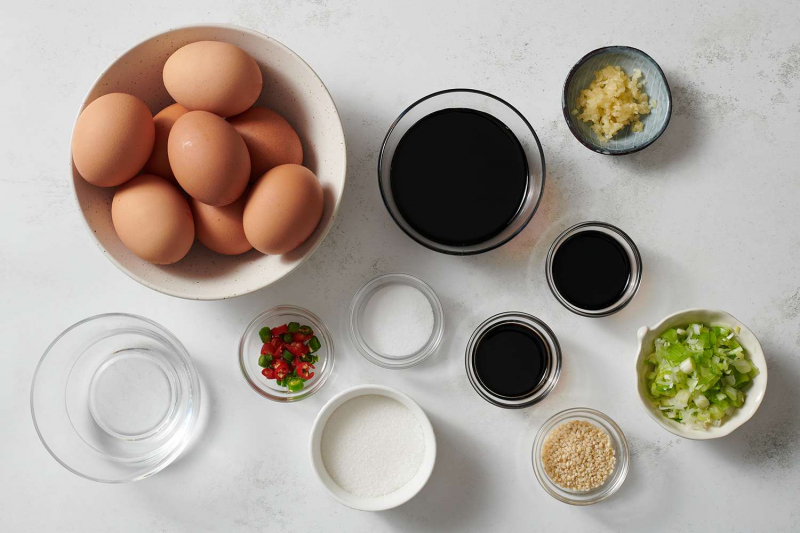
-
Add enough water to a medium pot to fully submerge the eggs. Add the salt to the water.
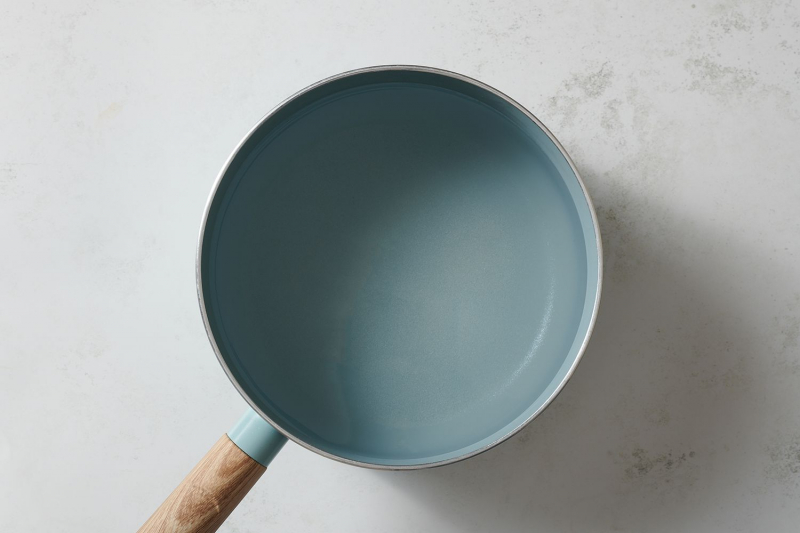
-
Place the pot over high heat and bring to a boil. When the water is at a rapid boil, turn down the heat to low. Use a ladle to place one egg at a time into the pot.
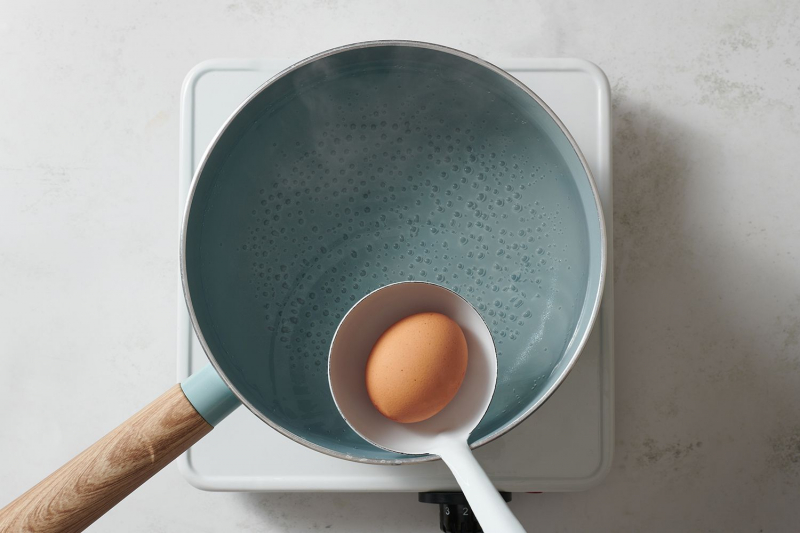
-
Once all eggs are in the pot, bring the heat back up to high. Set the timer to 6 minutes and 30 seconds. For the first 3 minutes, occasionally gently flip and roll the eggs using a spatula or by turning the handle of the pot left and right – this process helps the yolk to set in the center.
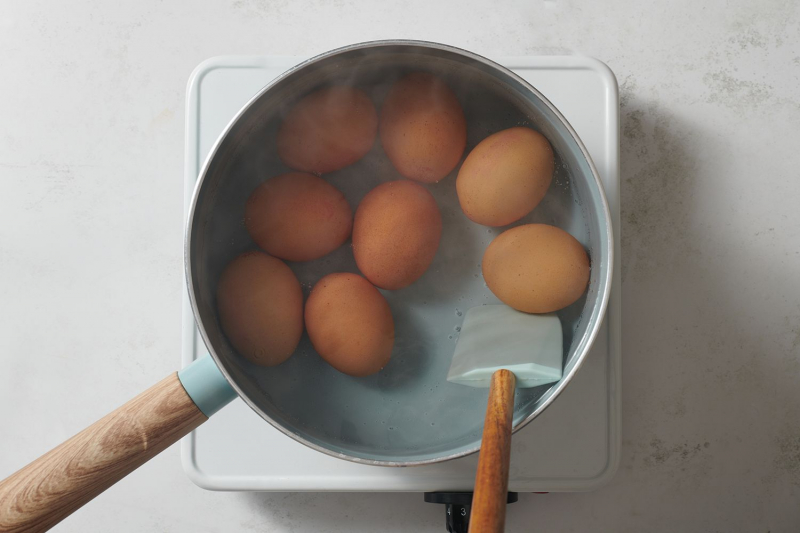
-
While the eggs are boiling, grab a 32-ounce deli container or quart-sized mason jar. Add soy sauce, water, aged soy sauce, balsamic vinegar, sugar, scallions, chiles, and sesame seeds and garlic if using. Stir vigorously until sugar is fully dissolved.
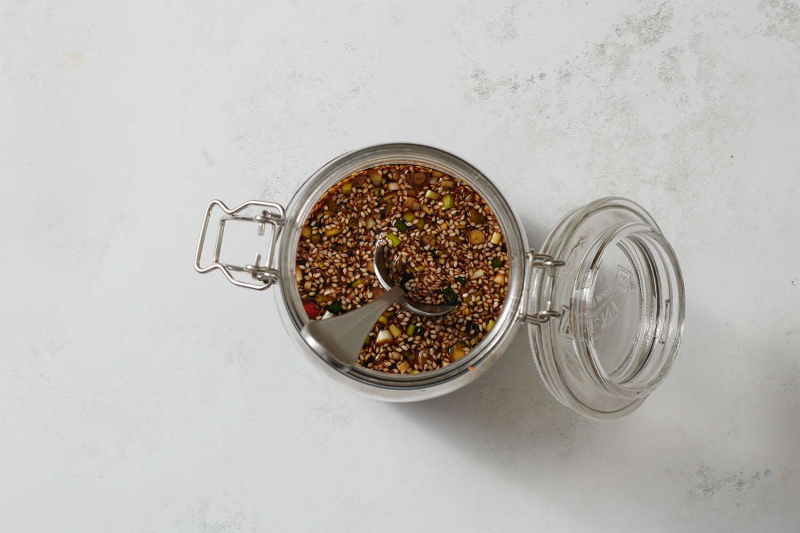
-
When the eggs are done cooking, pour off as much hot water as you can, then put the eggs, still in the pot, under cold running tap water to cool them down.
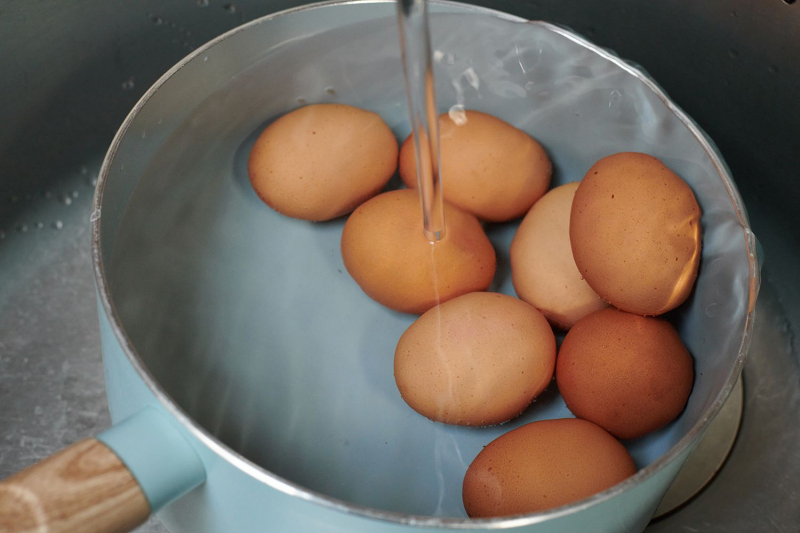
-
Peel the eggs and add directly to the container with the sauce. The container should be almost full and the eggs should be completely covered by the sauce.
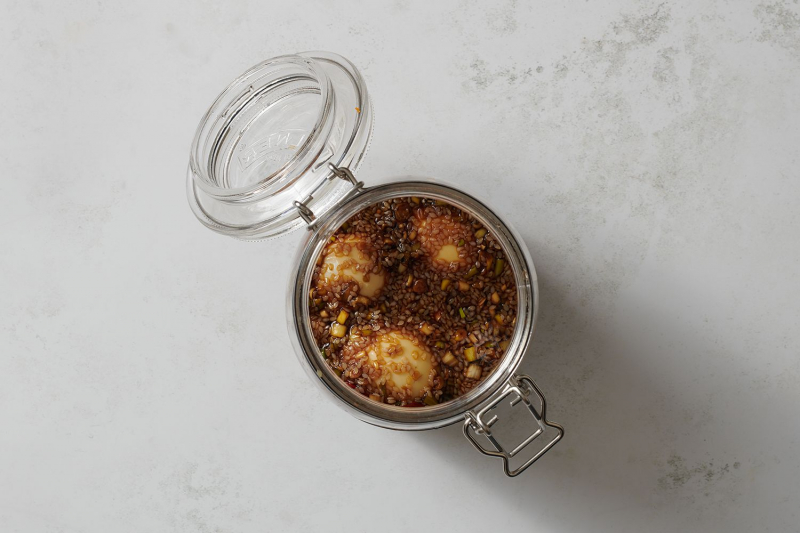
-
Cover and place the container in the fridge for at least 6 hours to marinate.
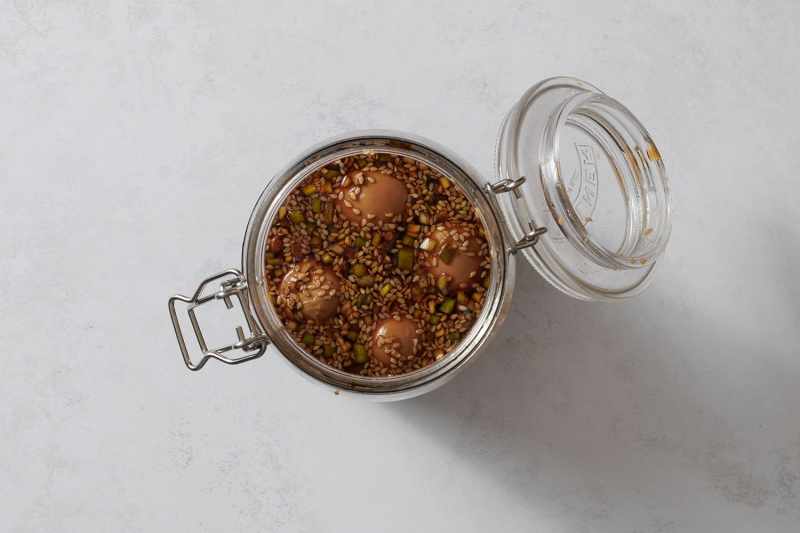
-
Serve one or two eggs, sliced in half, over warm white rice. Drizzle the sauce over the eggs. Store the eggs refrigerated in the sauce and consume within a week.
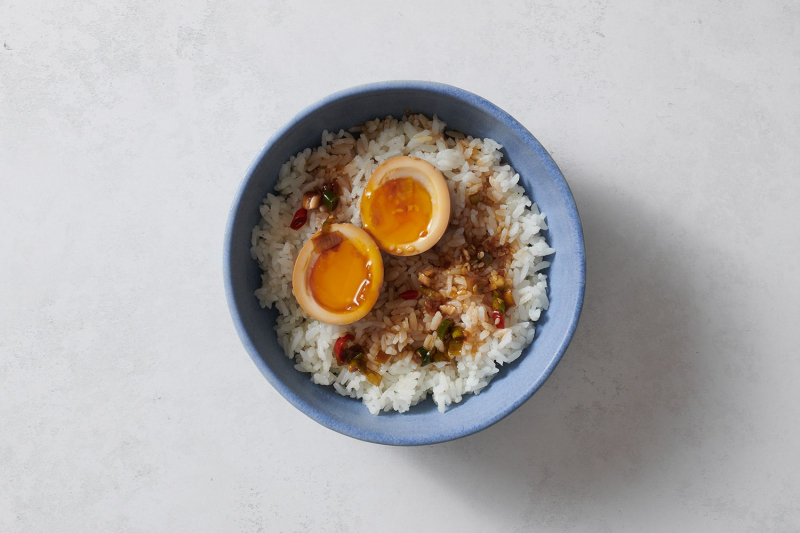
Recipe Tips
- If your eggs are too fresh, the thin membrane between the white and the shell can be difficult to remove, resulting in bumpy dented eggs. I have had good results with room temperature eggs, or eggs that I had bought a few days in advance.
- While the eggs are tasty after 6 hours of marinating and will last a week in the fridge, I find them the most delicious on days 2 and 3.
- The recipe can be reduced by half if you don’t want to make so many eggs.
- If you are using regular soy sauce, increase the amount of water used in the recipe to 1/2 cup.
Recipe Variations
- The most common way of eating these delicious eggs is over rice. BUT, please try it on avocado toast. I have also enjoyed smashing two mayak eggs in a bowl with a bit of the sauce and smearing them on a piece of lightly toasted sourdough, open-faced sandwich style. Not your mama’s egg salad sandwich.
- As for the chiles, choose your own spice level. I like to use a blend of serranos and fresnos, but I understand that might be too spicy for most. Consider jalapeños, habanadas, banana peppers, or even bell peppers. For me, the chile pepper component is what makes this dish “mayak,” so please do not omit, but rather use a less spicy chile variety. On the other hand, if you love the heat like I do, don’t be shy and add more or try adding a few Thai chiles.
- Aged soy sauce adds depth of color and flavor to the dish. If you do not have any or find it difficult to get, feel free to substitute with dark soy or hoisin sauce.
Don’t Toss the Extra Sauce!
I like to freeze the remaining sauce into ice cubes, and throw it into a quick veggie stir fry since it contains everything that I would normally put into a stir fry (soy sauce, sugar, scallions, and chiles).
| Nutrition Facts | |
|---|---|
| Servings: 4 | |
| Amount per serving | |
| Calories | 239 |
| % Daily Value* | |
| Total Fat 10g | 13% |
| Saturated Fat 3g | 16% |
| Cholesterol 372mg | 124% |
| Sodium 2945mg | 128% |
| Total Carbohydrate 21g | 8% |
| Dietary Fiber 1g | 5% |
| Total Sugars 16g | |
| Protein 16g | |
| Vitamin C 20mg | 98% |
| Calcium 93mg | 7% |
| Iron 3mg | 16% |
| Potassium 369mg | 8% |
| *The % Daily Value (DV) tells you how much a nutrient in a food serving contributes to a daily diet. 2,000 calories a day is used for general nutrition advice. | |
